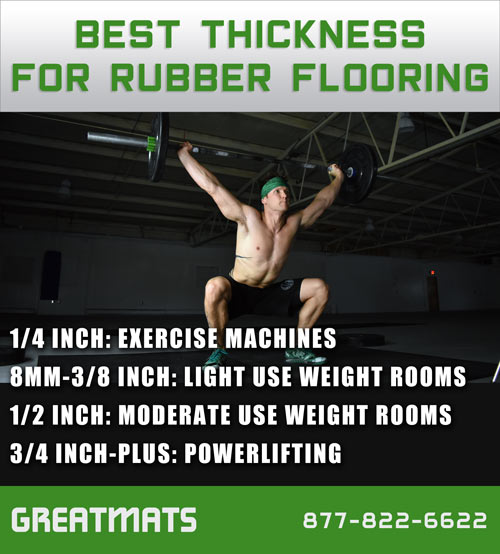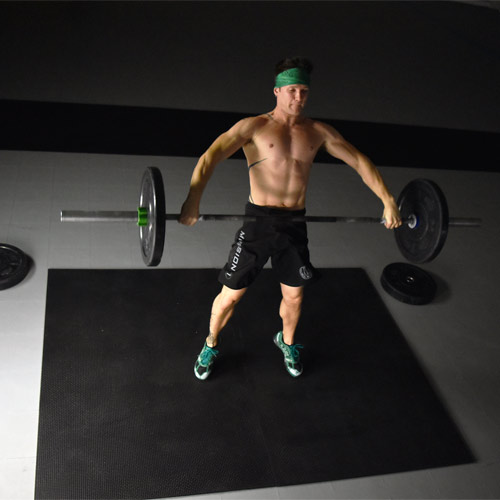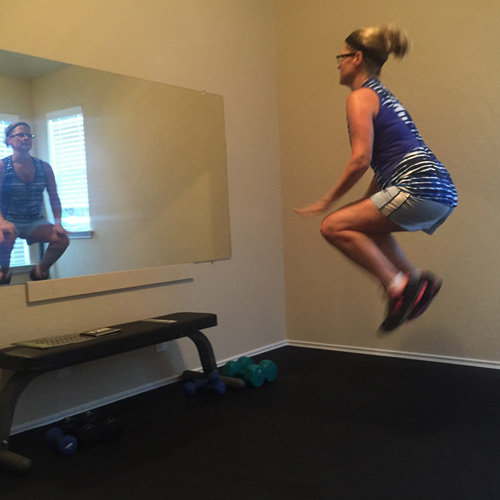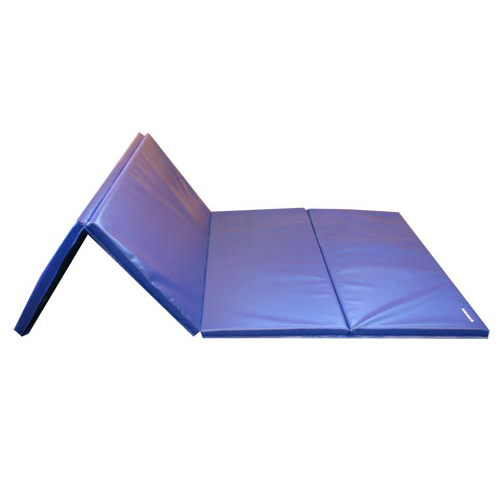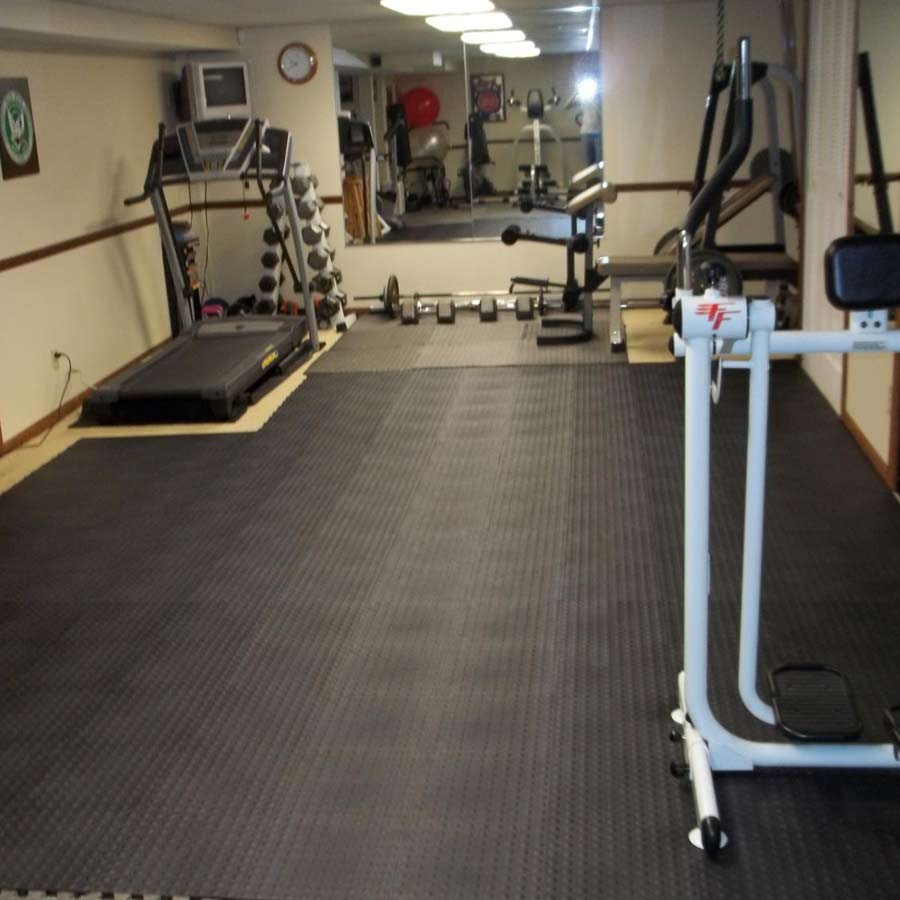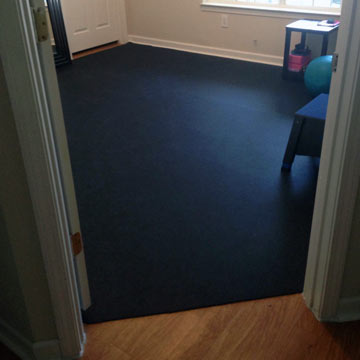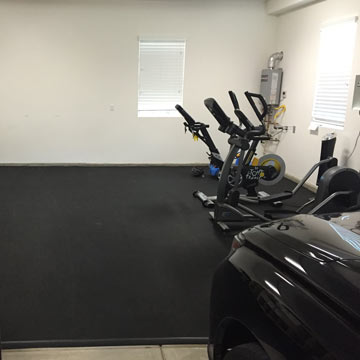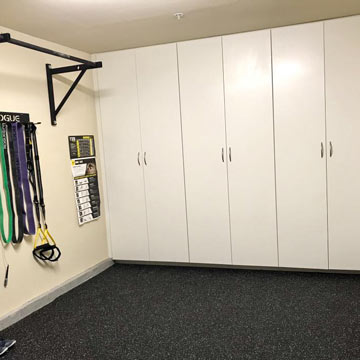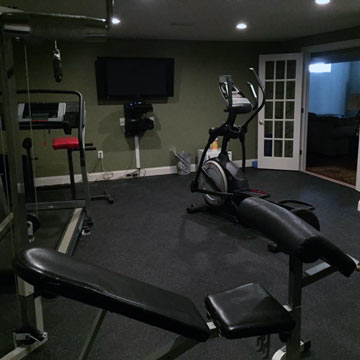What Makes The Best Rubber Flooring for Home Gyms?
Related Product: Geneva Rubber Tile 10% Color 3/8 Inch x 3x3 Ft.
To answer this question of what is the best flooring for your home gym, you'll have to keep a few things in mind, such as the type of workouts that will be done on the floor, what type of equipment it will need to hold, where the gym will be located, etc. Answer the following questions and you’ll set yourself up for a home gym with flooring you’ll love.
Is rubber flooring good for basements?

You've got your heart set on rubber home gym flooring as that's what you've seen at every fitness center and weight room you've been to. You love the durability, comfort, and protection it offers to you, your equipment, and your subfloor. Suddenly you realize that the home gym is in the basement, and it has a tendency to get moisture.
So is rubber flooring really right for your basement home gym? It certainly can be, but you need to keep in mind that damp basements will need more maintenance than dry areas. While rubber flooring will not be damaged by water, in most cases, it will trap the moisture underneath the rubber surface. With that being said, you'll want a rubber floor that can be easily pulled up, cleaned and dried underneath, and relayed.
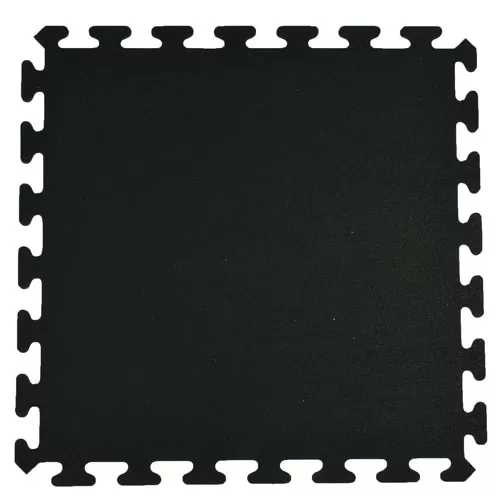
That's where interlocking rubber gym floor tiles come into play. This form of modular rubber home gym flooring typically is available in 2x2 foot or 3x3 foot rubber squares with puzzle style edges. They do not require adhesive for installation and are much easier to move around and reinstall than heavy rolls or stall mat-style flooring.
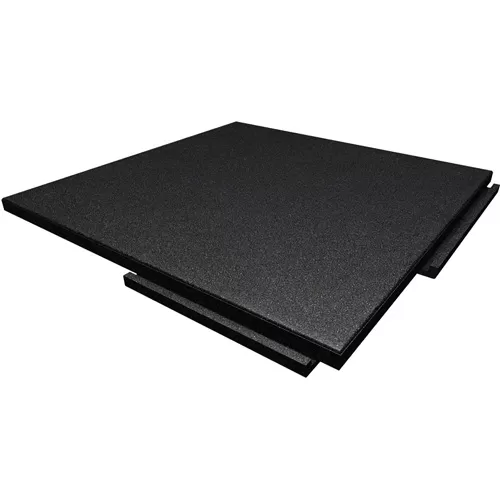
If your budget allows you can even find rubber home gym floor tiles with a raised base that will allow for better drainage and airflow. Reducing the need for removal in times moisture is present.
What is the best thickness for gym flooring?
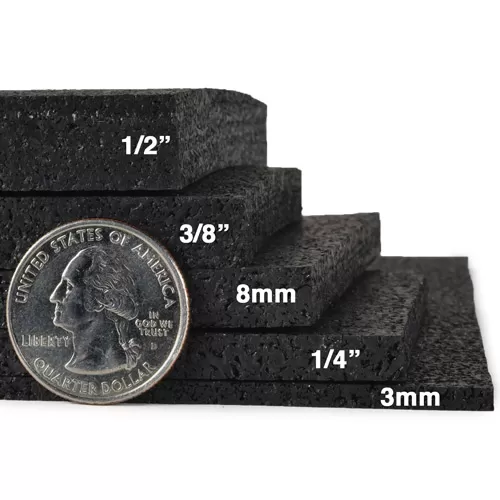
To answer this question, use type is the primary factor. If you are just planning on putting machines on top of the floor and maybe an occasional light dumbbell, 1/4-inch rubber flooring will suffice.
If free weights of 75 pounds or less will be the tool of choice, you'll want a thickness of at least 8mm (.31 inch) rubber flooring to protect your subfloor from accidental dropping of the weights.
Bump that thickness requirement up to 1/2 inch rubber mats for 100-plus pound weights, but keep in mind, this still won’t be enough if you plan to intentionally drop the weights.
For heavy-duty workouts, such as powerlifting or Olympic lifting, you'll want at least 3/4 inches of rubber flooring underneath.
Choosing the proper thickness is a critical component in determining 'What is the best rubber flooring for a home gym?'
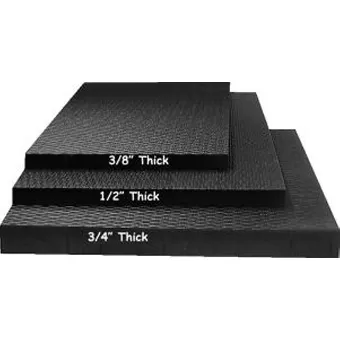
What are exercise mats used for?
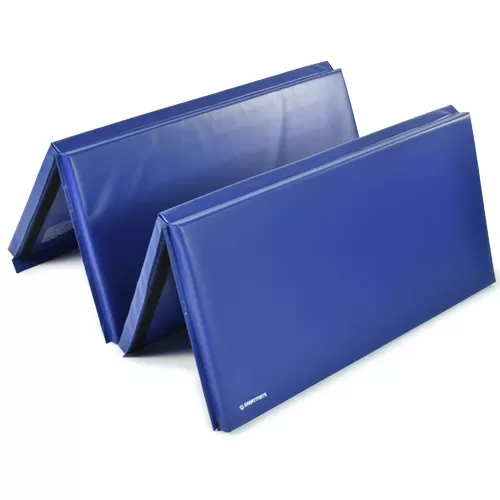
Exercise mats, also known as gym mats, are a great accessory to any home gym flooring. These mats offer more cushion than your rugged rubber flooring and will make body-weight floor exercises much more comfortable. Gym mats will help protect you from injury when doing things such as handstands and make sit-ups and crunches much more comfortable.
How thick should a gym mat be?
Unless you doing yoga, a gym mat should be at least one inch thick. This will offer you the best impact protection against falls.Can you put gym mats on the carpet?
While most gym mats are just fine to put on carpet, keep in mind they may shift on you if they are made of EVA foam or covered by vinyl.Some folding gym mats, however, feature hook and loop connector strips in which the hooks face downward when not connected. This can help prevent shifting on the carpet as they temporarily attach themselves to the carpet.
Gym Flooring Over Carpet
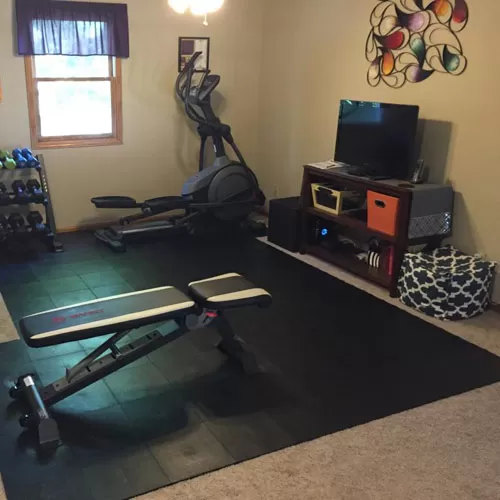
Another option to consider if your home gym is carpeted is raised PVC home gym floor tiles such as Greatmats' Staylock line of flooring. The feet on the underside of the tiles act as a non-slip base when placed over the carpet, and they won't damage the carpet. The PVC material will also offer more cushion and anti-fatigue benefits than rubber gym flooring.
This option is not recommended for powerlifting or Olympic lifting. And while there is limited fall protection, your 1-inch or thicker foam gym mats will offer better protection.
